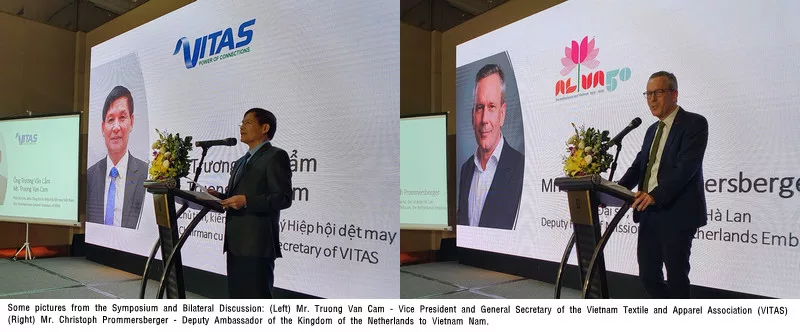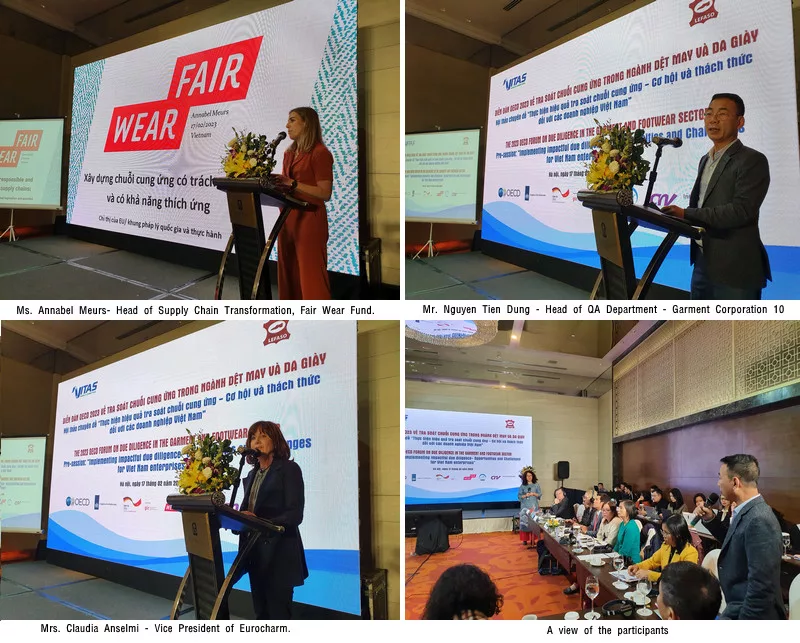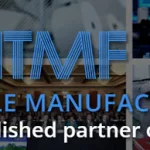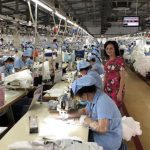A bilateral discussion between two groups of experts in Hanoi and Paris on the topic “Effective implementation of supply chain tracing: A practical perspective from Vietnam” was held under online and in-person combination.
Ahead of the bilateral discussion, the Vietnam Textile and Apparel Association (VITAS), the Vietnam Leather, Footwear and Handbag Association (LEFASO) with the support of the Dutch Embassy in Vietnam coordinated with international organizations Economic and non-governmental in Vietnam: Fair Wear, CNV International, CDI, GIZ co-organized the symposium: “Effective implementation of supply chain due diligence – Opportunities and challenges for textile and leather businesses Vietnamese shoes”.
As a country with a large number of businesses and labor force manufacturing and processing for European textile and footwear brands, the Vietnamese speakers expressed their concern in the context of increasing Tracing responsibility required by the consuming countries.
At the Symposium, experts agreed that if implemented effectively and fairly, the promotion of tracing will help raise the bar for Vietnam’s textile and footwear industry, help domestic enterprises improve their management skills and improve the position and rights of workers.
However, many basic issues that need to be clarified have also been raised such as with the complex supply chain characteristics, involving many parties, whether the tracing can be carried out effectively, helping to handle the problems (of the industry’s roots).
Many opinions also suggest that the responsibility for tracing must be shared equally between parties in the supply chain, not only pushing risks and responsibilities towards manufacturers and outsourcing – resources and capacity. there are still many limitations, which has long been a weaker voice than brands…
Participating in the dialogue session as a representative of Vietnamese textile and garment enterprises Mr. Luu Tien Chung, Vice Chairman of Vietnam Textile and Apparel Association suggested: “In order to implement HRDD effectively, it is necessary to have a clear commitment of parties, clearly define the responsibilities of each party and how to cooperate and share responsibilities. Implementing a supply chain audit at the supply chain level requires a roadmap and should start with pioneers who have a higher level of commitment, awareness, and capacity. force to implement”.
Mr. Chung also suggested that brands and buyers also need to create incentives for supply businesses to maintain and replicate improvement efforts in the industry, giving priority to employee issues, because Employees are the most important factor, the strongest driving force for the development of the industry…
Contributing to creating a favorable and equal business environment for businesses – Mr. Nguyen Van Binh, Director of the Legal Department of the Ministry of Labor, Invalids and Social Affairs of Vietnam, shared: “In the context of many ministries with different standards and regulations related to responsible business practices and investigations of the industry, international brands and market countries, businesses will face many difficulties when they have to meet the requirements of many parties.
According to Mr. Nguyen Van Binh, Brands need to strengthen dialogue and support manufacturing enterprises so that they have more resources to make substantive improvements, improve productivity and ensure workers’ rights. State agencies should promote their executive role by reviewing domestic legal standards and regulations to ensure that the spirit of these requirements is reflected in national laws and policies.
At the symposium, the representative of Garment 10 Corporation – an enterprise that is cooperating with many customers and major brands in the main export markets, the EU, the US, and Japan, found that the implementation of the inspection brought benefits to enterprises. Businesses improve corporate brand reputation as well as employees’ lives… May 10 said that in 2022 at the unit, there will be 170 reviews of customers and organizations on social responsibility with many sets of standards according to the standards. Therefore, enterprises suggest that there should be common standards for evaluation to avoid duplication of appraisal and evaluation contents, especially social standards…
Many other regulations are also being drafted and are expected to be issued soon such as the European Union (EU) Directive on Corporate Sustainability Due Diligence, the Law on Environmental Traceability Responsibility and the Right to Compliance. Dutch people, EU Forced Labor Ban. These changes pose challenges for brands and suppliers in the textile and footwear price chain, but also an opportunity for parties to promote cooperation initiatives and responsible purchasing practices, enhance production capacity and improve working conditions for workers.
Some pictures from the Symposium and Bilateral Discussion: Mr. Truong Van Cam – Vice President and General Secretary of the Vietnam Textile and Apparel Association (VITAS) Mr. Christoph Prommersberger – Deputy Ambassador of the Kingdom of the Netherlands to Vietnam Nam.







